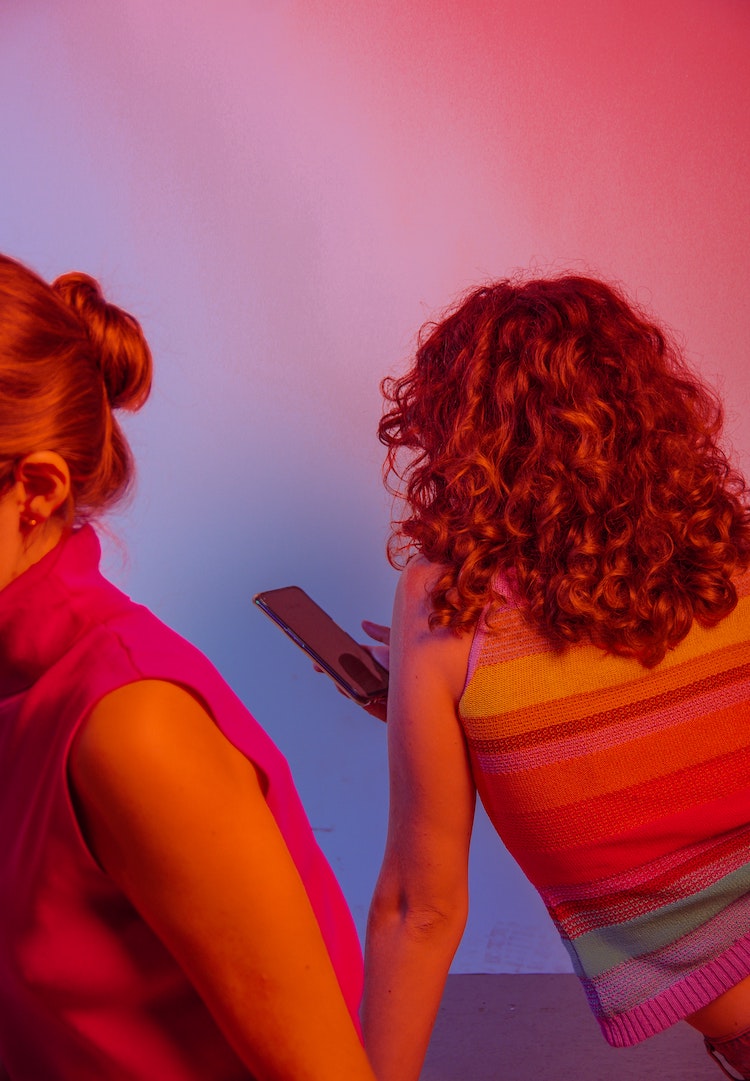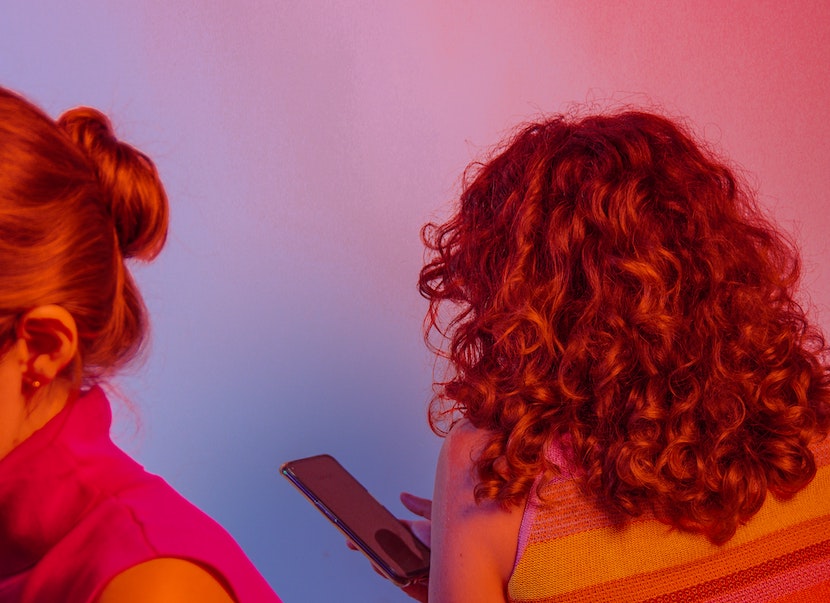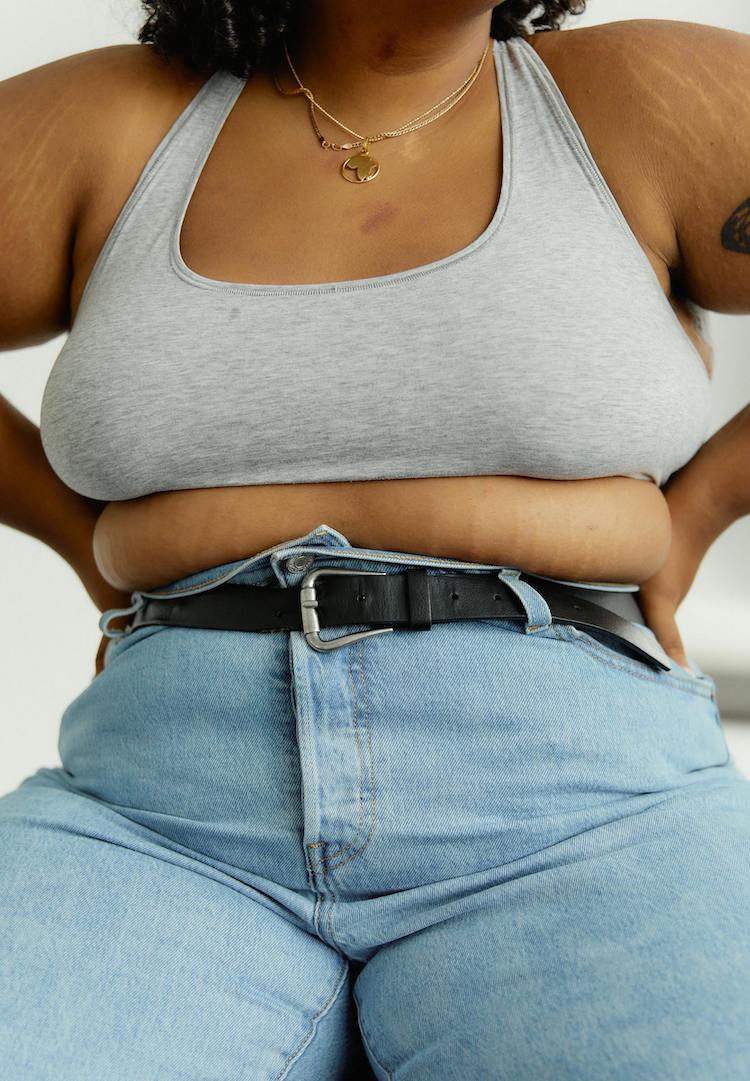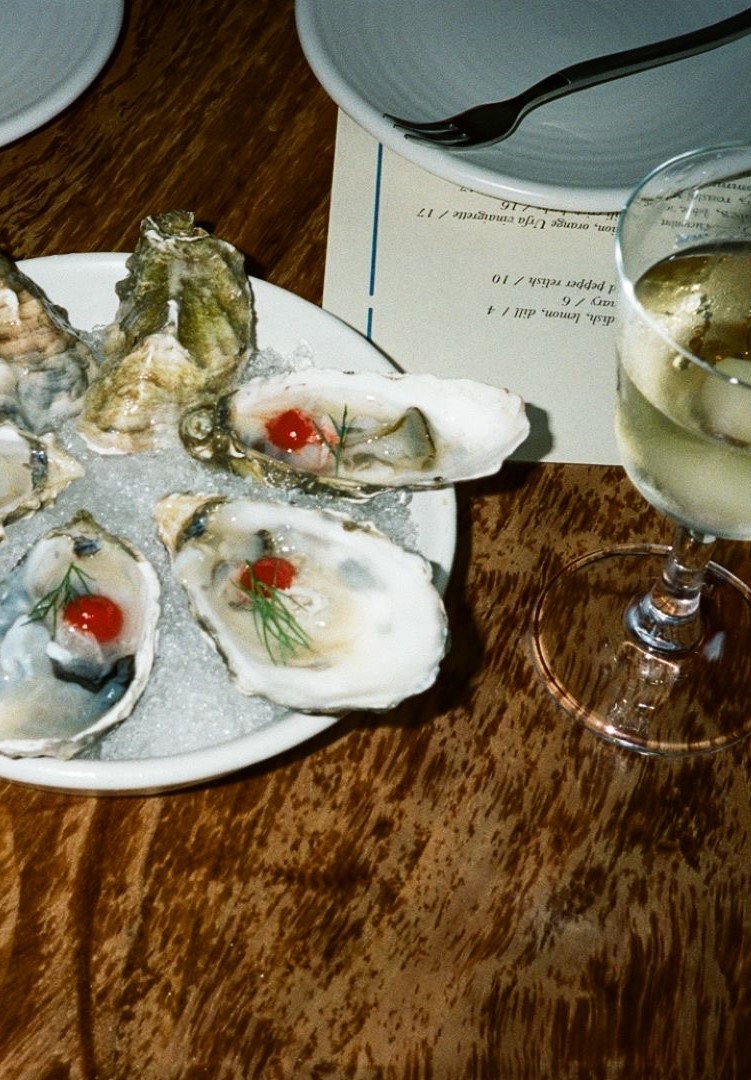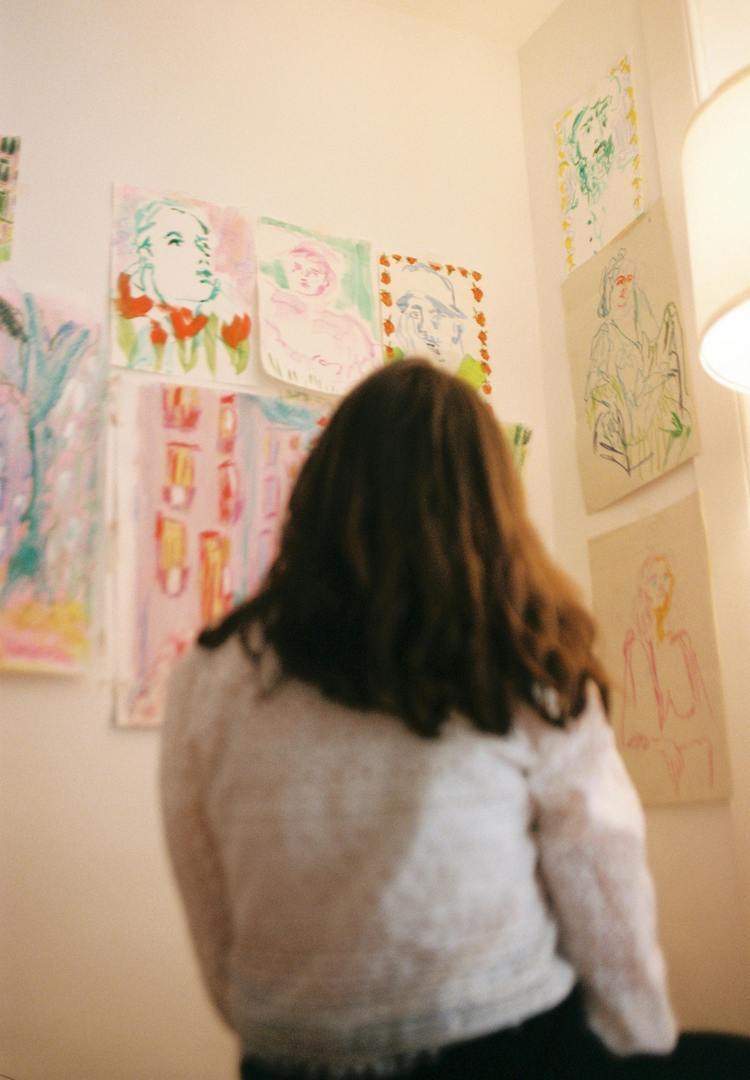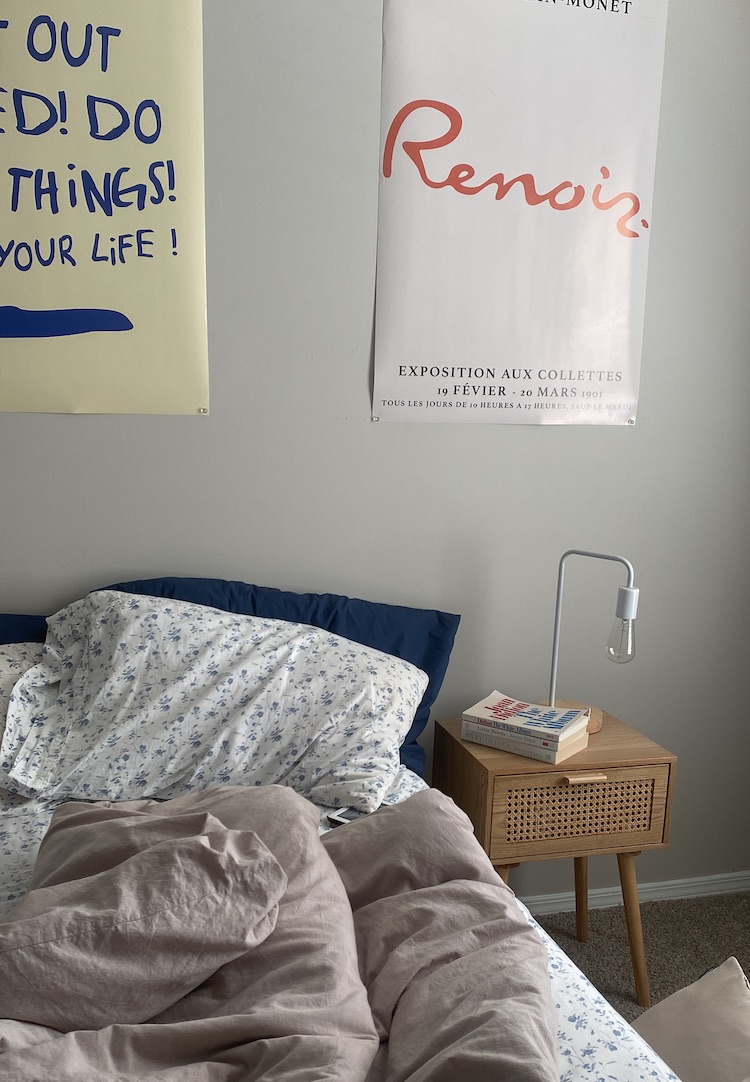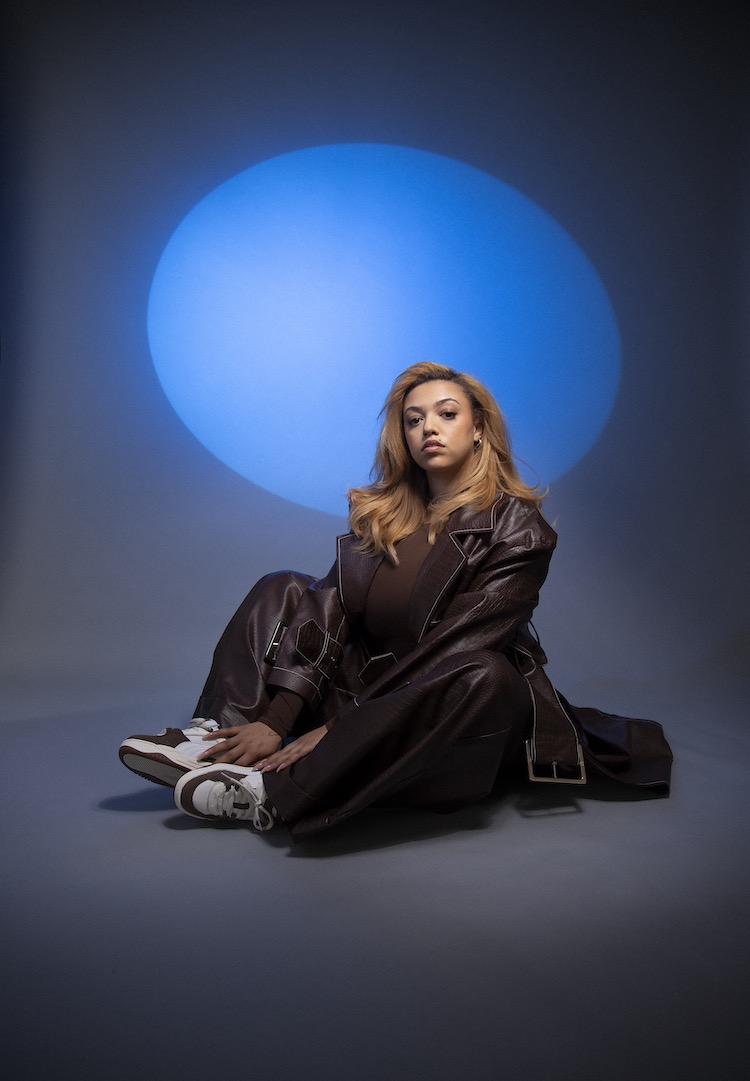Why do people still believe that bisexuality and monogamy can’t coexist? I asked a psychologist
WORDS BY Ruby Staley
“Just like there’s no one way to be queer, there’s no one way to be in a monogamous relationship.”
Time and time again, I’ve grimaced at the stereotype that bisexuality and monogamy clash. That, for some reason, they don’t exist in the same universe. As a baby queer myself, navigating queer relationships is still very new to me but I feel confident in saying this is rarely ever the case in reality.
Queer or not, people go into relationships with their own experience of sexuality, sex and monogamy, and it’s always confused me as to why bisexuals have been placed in a separate box.
Looking for more thought-provoking reads? Try our Life section.
To demystify some of the commonly held biphobic beliefs around bisexuals entering monogamous relationships, I spoke to the wonderful Javiera Dastres, a Senior Psychologist at Sexual Health and Intimacy Psychological Services (SHIPS), who offered me a wealth of information and advice on the topic.
Hi Javiera! Tell me about your understanding of the theory of biphobia.
Many of us have been socialised to think that attraction to one gender is the norm [and] that anything outside of that is unacceptable. Someone who has been raised to think that, it’s understandable that they would have a perception that people who are not heterosexual are flighty, undecided or different. Being flighty and undecided is not related to someone’s sexuality, but if we’ve been socialised to think those things, then that’s the story we take with us.
Knowing that our beliefs are not facts, looking at that narrative that we’ve developed around sex, sexuality and relationships and then being curious about why we think a certain way is the first step to becoming aware of that biphobia, and that differences are okay. Sex, sexuality and relationships aren’t binary – they’re dynamic and complex and there’s beauty in that.
How can this idea of biphobia manifest in relationships, whether they’re monogamous or not?
Again, it comes down to how we’ve been socialised. There might be this belief that someone [has] internalised that being bisexual and being in a monogamous relationship are incompatible, that it’s not possible. The thought might be that they, or their partner, have chosen a side, that they’re not bi enough, or that their partner with inevitably cheat because they won’t be satisfied.
Researchers found that internalised stigma tends to have a negative impact on our romantic relationships. When someone has difficulty accepting all parts of us around our sexuality, that impacts how we think, feel and behave within our relationship. It reduces our satisfaction in the relationship, because like the age old saying goes ‘If you can’t love yourself, you can’t love somebody else’.
With biphobia, it’s not always conscious. We can be absolutely open and accepting of everyone, but not of ourselves. That can feel really confusing but is absolutely normal because the beliefs we’ve internalised can sometimes be quite different to the beliefs that we hold for others. Being aware of our internalised stigma and biphobia can allow for that process of self-acceptance. It’s also important to be aware that doing that can bring up a lot of shame, and can be quite confusing and challenging.
I’ve actually explored that idea before in my writing, that notion of sexuality imposter syndrome. In your opinion, can this monogamous idea of a relationship and bisexuality, and even biphobia, happily co-exist?
Where there’s internalised biphobia and biphobic beliefs, it doesn’t lead to a happy, healthy, open relationship. If we’re saying that there’s parts of our partner, or of ourselves, that we won’t accept, then that relationship isn’t entirely built on genuine openness, authenticity and acceptance. So, it’s going to have an impact.
But we can be aware of the beliefs that we hold and be curious about them and ask where they come from. Is this belief honouring my values, or in line with my goals and who I want to be with? And if they’re not, being honest with ourselves and thinking about how to challenge those beliefs. All while being kind and gentle about it, because these are beliefs that we’ve held for many years that we may not have been aware of, beliefs we have been told are facts, when really, they’re just opinions…
Someone connecting to their bisexuality while being in a monogamous relationship is possible because connecting to that bi identity doesn’t need to involve sex. Sexuality is on the spectrum, sexual experience is on a spectrum, relationships are on a spectrum – so just like there’s no one way to be queer, there’s no one way to be in a monogamous relationship.
Going back to that stereotype of being flighty and undecided as a bisexual, where do you think those specific beliefs come from?
It comes from that very binary way of thinking: you’re either in a relationship or not, or you’re either heterosexual or not. When we start to become more aware that there’s grey, it can be quite confusing because [due to] the beliefs that we’ve been socialised in there’s this idea that there must be a choice made – one way or the other. And when it isn’t, there’s this idea that a decision hasn’t been made.
It also comes into these beliefs that sex and sexuality are just behaviours, then there’s this assumption that when somebody is bisexual then they’re going to want to act on their bisexuality. It’s coming from a really limited definition of sex and sexuality, which means then we limit our sexual expression, which doesn’t have to involve a set of behaviour with a person and can involve fantasies, erotica, exploring within yourself, or with your partner.
It isn’t just a behaviour, so when we expand our definition of sexuality, it means our options broaden. It’s not that we haven’t decided or are flighty, it’s that it is possible to hold more than one thing at the same time in terms of our sexual expression.
Do you have any tips for someone who’s recently discovered they’re bisexual to explore that safely and responsibly, whether single or in a monogamous relationship?
Because there are so many ways we can express and connect with our sexuality and because sexual expression isn’t about a behaviour, people can connect with their bi identity through noticing and accepting their attraction to others. It can also involve attending queer events, connecting with other bi folk, joining a queer community, looking at queer literature, artwork media and cinema, and watching ethical non-hetero porn. When we get to see how other people express their sexuality, when we see the colour in between the black and the white, then we can decipher how we want to express our sexuality.
Especially if we’ve been socialised in a biphobic community, consciously seeking out those parts of society that have always been there but might not have been visible to us is essential… In accepting your attraction to others, it can also be about discussing that with those that you love, who also love and care about you. Being honest and open is important but choosing that only if it’s safe to do so.
Whether you’re single or in a relationship, all those things can be about connecting to bi identity without engaging in a certain behaviour with another person. Ultimately, it comes down to communication and being honest with yourself, and if you’re in a relationship, your partner too. That could mean defining monogamy in your relationship, what are your boundaries, what are your expectations around what bisexuality within a monogamous relationship might look like, sharing our needs and being kind, supportive and non-judgemental.
I love the idea that exploring your sexuality has little to do with actual sex and more to do with community and communication, which is huge in any relationship and throughout life in general.
Definitely, and it comes down to a very narrow societal definition of what sex is… that you are only sexual if you are engaging in sex. But in reality, even when we are not engaging in the limited definition of sex, we can still be very sexual.
The spectrum of sex is so wide, so when we are aware of that we get to define what sex is and what sexuality means for us. It just opens us up to so many new and different experiences that honour who we are and all the parts of us.
This interview has been edited for length and clarity.
For more on biphobia, try this.


